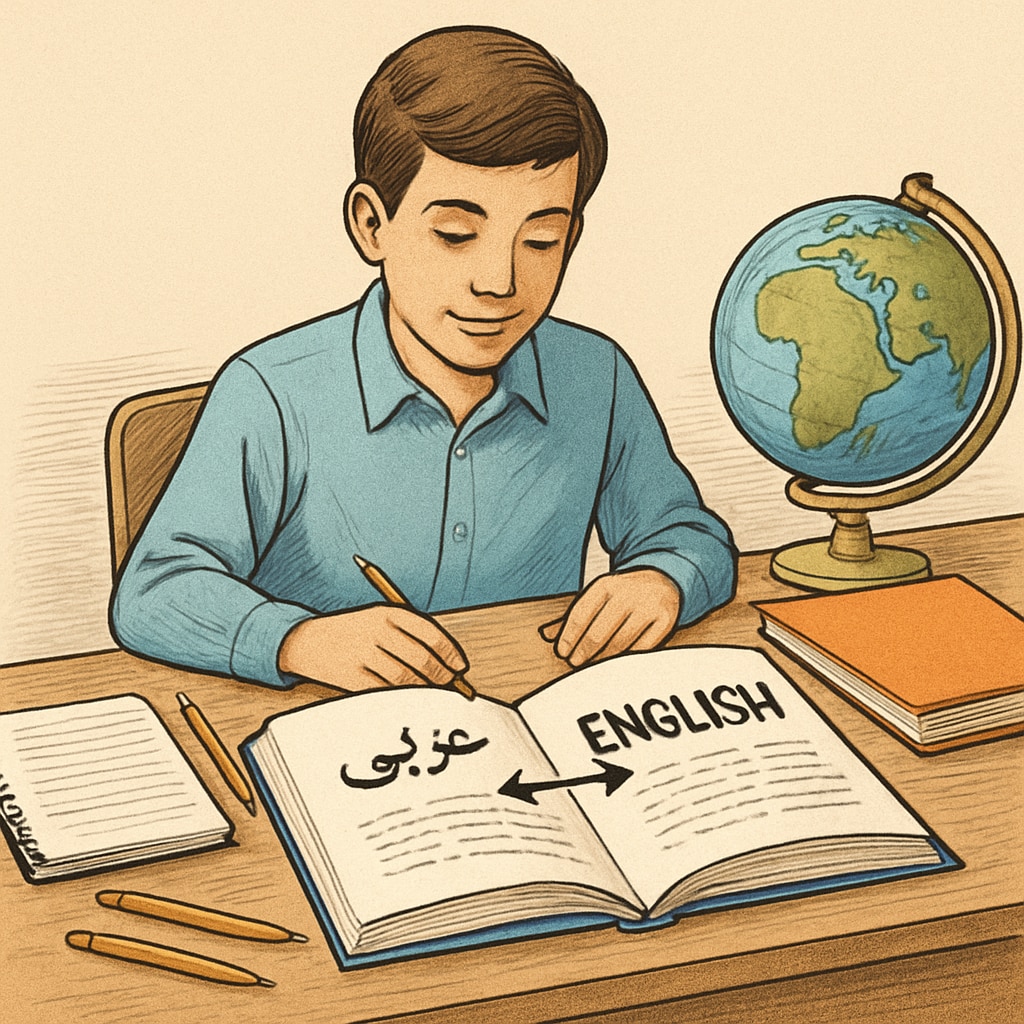Transitioning from a native language education system to a foreign one, such as from Arabic to English, presents unique challenges and opportunities for K12 students. This process, often driven by the pursuit of global education and better opportunities, involves significant language adaptation, academic adjustments, and cultural integration. Mastering the art of language conversion, study abroad preparation, and learning adaptation is key to ensuring a smooth transition and academic success.
Understanding the Challenges of Language Transition
Shifting from a native language to a foreign language in the education system is not merely about acquiring new vocabulary. It requires students to adopt an entirely new way of thinking, processing information, and interacting in a classroom environment. For example, Arabic learners transitioning to English face structural differences between the two languages, such as grammar, sentence formation, and vocabulary nuances.
Moreover, students often encounter the challenge of mastering academic language, which differs significantly from conversational fluency. Academic English, for instance, is dense with technical terms and complex structures. These hurdles can make understanding subjects like mathematics and science even more daunting.

Overcoming Language Adaptation Barriers
To successfully transition, students need to focus on several key strategies:
- Immersive Learning: Surrounding oneself with the foreign language, through media, books, and conversations, accelerates fluency.
- Structured Language Programs: Enrolling in courses specifically tailored for academic English can make a significant difference.
- Peer Support: Connecting with classmates who have undergone similar transitions can provide valuable insights and emotional support.
Additionally, schools can play a critical role by offering language support services, such as tutoring or bridging programs, to ease students into the new system. For example, many international schools provide English as a Second Language (ESL) programs specifically designed to aid non-native speakers.
Cultural and Academic Integration
Adapting to a new education system involves more than just language. Students must also navigate cultural differences in classroom norms, teaching styles, and social interactions. For instance, students from an Arabic education background might be accustomed to teacher-centered learning, whereas Western education systems often emphasize student-led discussions and critical thinking.
To bridge this gap, it is essential to embrace a growth mindset. Students should view challenges as opportunities for personal and academic growth. Engaging in extracurricular activities, forming study groups, and seeking mentorship can also help students integrate both culturally and academically.

The Role of Parents and Educators
Parents and educators play a pivotal role in supporting students during this transition. Parents can encourage language practice at home and foster a positive attitude toward the new education system. Meanwhile, teachers can adopt inclusive teaching methods, such as differentiated instruction, to accommodate diverse language abilities.
Furthermore, open communication between parents, educators, and students creates a supportive network that addresses challenges proactively. Encouraging students to share their experiences and struggles can lead to tailored solutions that enhance their learning journey.
In conclusion, transitioning from a native language education system to a foreign one requires resilience, adaptability, and support. By focusing on language conversion, cultural integration, and academic adjustments, students can not only overcome challenges but also thrive in their new environment. This journey, while demanding, ultimately equips students with invaluable skills for the globalized world.
Readability guidance: The article is structured with concise paragraphs, lists to summarize key points, and transitions to ensure clarity. Passive voice and long sentences are minimized for better readability.


